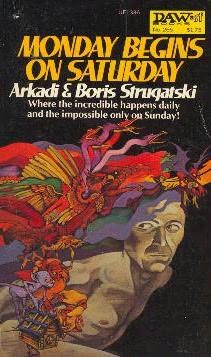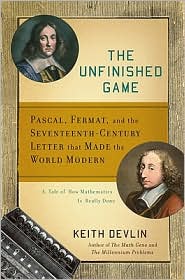
There seems to be something of a general rule that Russian and Slavic fantastic literature is among the most fantastic out there, and the Strugatski brothers' Monday Begins on Saturday is no exception. Three closely-linked stories, all unreliably narrated by the same computer programmer, introduce readers to S.R.I.T.S., the secret Soviet facility for research into magic, sorcery and the extra/para/supernormal. It's staffed by a variety of characters from Russian and other European myths and legends, whose cooperation and/or lack thereof drive the story along (for the most part, its narrator, whose name I cannot recall, is a fairly passive observer). Of the three tales included in this book, the third is the most interesting and absorbing by far. It details a number of researchers' and technicians' investigation into the mystery of the two identical S.R.I.T.S. supervisors, who appear and do not appear to be precisely the same person (the solution at which they arrive is enough to turn anyone's head). What makes these stories interesting is the playful manner in which the Strugatskis--themselves Soviet scientists--mix and mingle science, technology, folklore and magic in the most lively and unexpected ways. Overall, I'd say Monday Begins on Saturday deserves a B or B+, but no higher: interesting though it was, I wasn't enamored by the writing (although, to be fair, that could be more of a translational problem than anything else).












